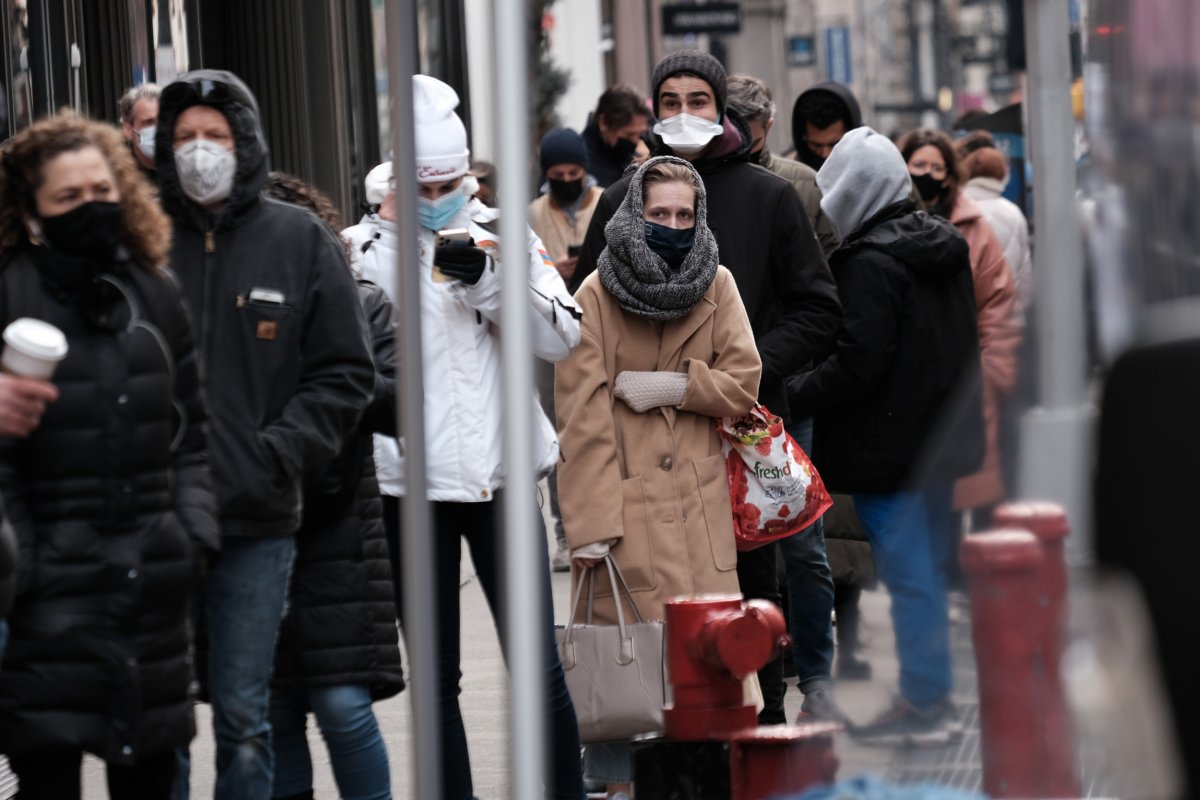Pfizer's COVID antiviral pill cocktail could help reduce strains on health care systems but their impact could be diminished if Americans continue to struggle to find testing appointments and have to wait days for their results.
The antiviral cocktail showed to be more than 80 percent effective at preventing hospitalizations from COVID-19 in clinical trials, according to the company. Pills are easy to store, transport and administer, raising their potential to be widely available, but must be taken within five days of symptom onset, which isn't a lot of wiggle room amid a testing backlog.
Amid a surge in COVID-19 cases fueled by the Omicron variant, the United States saw a massive increase in demand for COVID-19 tests ahead of the holiday season. Despite President Joe Biden's commitment to increasing access to tests, the system couldn't handle the influx in demand, leaving Americans unable to find appointments and waiting days to get their results.
While at-home tests were intended to alleviate some of the demand on health care centers, they've flown off the shelves and Biden admitted on Monday that there is "more work" to do regarding testing.
Dr. Panagis Galiatsatos, a pulmonary physician and professor at Johns Hopkins Hospital, told Newsweek that COVID antiviral pills will "emphasize where our gaps continue to lie." One of those gaps, according to Galiatsatos, is testing because two years into the pandemic, Americans are still struggling to get test results back in a timely fashion.

Antivirals work best when given early on because they're meant to stop the virus from progressing. The goal of the pills is to help prevent high-risk people from developing such severe disease from COVID-19 that they need to be hospitalized. This could make them a "game-changer" for the pandemic, according to experts, because it could save lives and reduce the strain on overwhelmed hospitals.
Dr. Mahdee Sobhanie, an infectious disease physician at Ohio State University Wexner Medical Center, noted that many high-risk people, including transplant patients, might not live close to a hospital so it's "incredibly important" they have access to at-home tests and can quickly report their results to a physician. They're among the group of people who could benefit from the antiviral cocktail, but having to drive hours or being unable to get an appointment could push them out of the five-day window for treatment.
"The first thing is that we really do have to make sure testing is easy and accessible to everybody," Sobhanie said.
Most people wait at least a day or two after noticing symptoms to get tested because many are so mild that they could be written off as a different ailment. With some people having to wait five to seven days for a test result amid the surge in demand, the antiviral cocktail would be deemed useless.
The Institute of Health Metrics and Evaluation (IHME) projected that increased demand for tests will continue at least through April because of the highly infectious nature of the Omicron variant.
Arkansas Governor Asa Hutchinson expressed concerns about the shortage of rapid tests on Monday's call with the president. He noted governors are being "pressured to do more and called the need in terms of tests "great."
Biden urged governors not to "panic" and noted that the Federal Emergency Management Agency (FEMA) will create more pop-up testing sites. He reiterated that his administration purchased 500 million rapid tests to be mailed to Americans, with the first going out in January. However, it's unclear when all 500 million will be available.
Sobhanie noted that respiratory infections are "notorious to treat" and the short window for success with antivirals is a challenge. So, he said just like with the flu, the message about COVID-19 needs to be that the number one thing people should be doing is getting vaccinated.
Uncommon Knowledge
Newsweek is committed to challenging conventional wisdom and finding connections in the search for common ground.
Newsweek is committed to challenging conventional wisdom and finding connections in the search for common ground.
About the writer
Jenni Fink is a senior editor at Newsweek, based in New York. She leads the National News team, reporting on ... Read more
To read how Newsweek uses AI as a newsroom tool, Click here.








